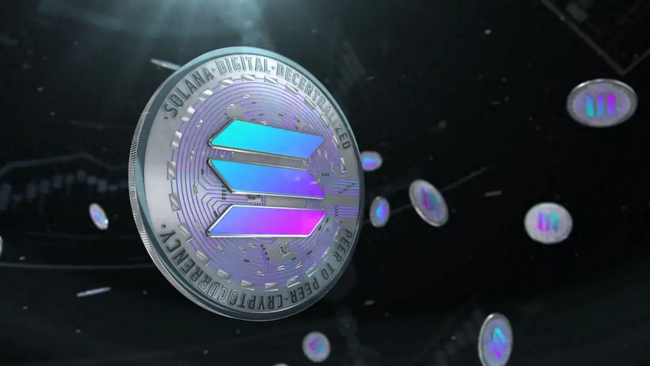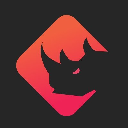-
 Bitcoin
Bitcoin $82,816.2586
-0.05% -
 Ethereum
Ethereum $1,893.0079
0.40% -
 Tether USDt
Tether USDt $1.0000
0.01% -
 XRP
XRP $2.3196
1.66% -
 BNB
BNB $626.1871
4.81% -
 Solana
Solana $126.8591
-1.11% -
 USDC
USDC $1.0000
0.02% -
 Dogecoin
Dogecoin $0.1707
2.34% -
 Cardano
Cardano $0.7178
2.45% -
 TRON
TRON $0.2160
1.14% -
 Pi
Pi $1.3559
-4.14% -
 UNUS SED LEO
UNUS SED LEO $9.8267
0.28% -
 Chainlink
Chainlink $13.6390
1.73% -
 Toncoin
Toncoin $3.4142
2.13% -
 Stellar
Stellar $0.2720
3.72% -
 Hedera
Hedera $0.1907
2.75% -
 Avalanche
Avalanche $18.3477
0.20% -
 Shiba Inu
Shiba Inu $0.0...01283
1.51% -
 Sui
Sui $2.2775
2.34% -
 Litecoin
Litecoin $92.5623
4.10% -
 Polkadot
Polkadot $4.3469
3.12% -
 MANTRA
MANTRA $6.8572
3.57% -
 Bitcoin Cash
Bitcoin Cash $338.5203
3.05% -
 Ethena USDe
Ethena USDe $0.9996
0.00% -
 Dai
Dai $1.0000
-0.01% -
 Bitget Token
Bitget Token $4.4142
1.10% -
 Hyperliquid
Hyperliquid $13.6275
2.18% -
 Monero
Monero $211.1690
0.84% -
 Uniswap
Uniswap $6.1467
2.33% -
 Aptos
Aptos $5.3718
4.17%
What is the operation process of buying SOL coins? What issues should be paid attention to when buying SOL coins?
To purchase SOL coins, select a reputable platform, create an account, deposit funds, find the SOL trading pair, place an order, confirm the purchase, and securely store your coins in a hardware wallet.
Oct 09, 2024 at 06:05 am

Purchase of SOL Coins: A Comprehensive Guide
- Choose a Reputable Platform
Begin by selecting a trustworthy cryptocurrency exchange that allows SOL trading. Leading platforms include Binance, FTX, and Coinbase Pro.
- Create an Account
Establish an account on the chosen platform. Provide personal information, verify your identity, and set up two-factor authentication for enhanced security.
- Deposit Funds
Fund your account with fiat currency (e.g., USD, EUR) or other cryptocurrencies. The exchange may offer various deposit methods such as bank transfer, credit/debit card, or peer-to-peer transfers.
- Find the SOL Trading Pair
Search for the SOL trading pair. For example, "SOL/USDT" or "SOL/BTC." This represents the price of SOL in relation to the paired cryptocurrency (USDT or BTC).
- Place an Order
Select the order type. Market orders execute immediately at the current market price. Limit orders allow you to set a specific price at which you want to buy or sell.
- Confirm the Purchase
Review the order details, including the quantity, price, and fees. Once satisfied, confirm the purchase.
- Store Your SOL Coins
After the purchase, your SOL coins will be credited to your exchange wallet. You can leave them there or transfer them to a secure hardware wallet for added protection.
Cautions When Buying SOL Coins:
- Market Volatility: SOL's price, like other cryptocurrencies, is subject to fluctuations. Research and understand the market dynamics before making any investment decisions.
- Transaction Fees: Exchanges charge fees for deposits, withdrawals, and trading. Compare fee structures and choose the platform that aligns with your trading needs.
- Security: Ensure your account and private keys are secure. Use strong passwords, enable two-factor authentication, and avoid storing large amounts on exchange wallets for extended periods.
- Scams: Be wary of unsolicited offers or communications from unknown sources claiming to offer exceptional returns or investment opportunities.
- Regulatory Compliance: Familiarize yourself with the regulatory landscape in your jurisdiction and ensure adherence to any applicable laws or regulations.
Disclaimer:info@kdj.com
The information provided is not trading advice. kdj.com does not assume any responsibility for any investments made based on the information provided in this article. Cryptocurrencies are highly volatile and it is highly recommended that you invest with caution after thorough research!
If you believe that the content used on this website infringes your copyright, please contact us immediately (info@kdj.com) and we will delete it promptly.
- Trade Crypto, Stocks & Forex for Free: BlockchainFX Lets You Test Its Trading Super App with $10,000 USDT Demo – No KYC Required
- 2025-03-17 21:30:57
- The end may be in sight for the long-running legal battle between Ripple and the U.S. Securities and Exchange Commission (SEC).
- 2025-03-17 21:25:57
- Solana and XRP Struggle Amid Market Uncertainty
- 2025-03-17 21:25:57
- DeepLink Protocol (DLC) Now Listed on MEXC
- 2025-03-17 21:25:57
- Prominent asset manager 21Shares has announced the liquidation of two crypto futures ETFs focused on Bitcoin and Ethereum.
- 2025-03-17 21:25:57
- U.S. spot Bitcoin (BTC) exchange-traded funds recorded over $1.6 billion in net outflows
- 2025-03-17 21:25:57
Related knowledge

What is Ethereum’s Slashing mechanism and how to punish malicious behavior?
Feb 20,2025 at 03:08am
Key PointsOverview of slashingDifferent types of slashing in EthereumIncentives and consequences of slashingIdentifying and reporting slashed validatorsOngoing discussions and potential improvementsEthereum's Slashing Mechanism: Punishing Malicious BehaviorEthereum's slashing mechanism is an essential tool for ensuring network security and punishing mal...

What is the verifier node of Ethereum and how to become a verifier?
Feb 19,2025 at 06:00pm
The Verifier Node of Ethereum: A Comprehensive GuideKey Points:What is a Verifier Node?How to Become a Verifier NodeResponsibilities and Rewards of a Verifier NodeMinimum Requirements for Becoming a Verifier NodePotential Difficulties in Running a Verifier Node1. What is a Verifier Node?A Verifier Node is an independent entity on the Ethereum network th...

What is Ethereum’s staking, and how to participate and earn money?
Feb 19,2025 at 04:37pm
Key Points:Understanding Ethereum's Staking MechanismSteps to Participate in StakingBenefits and Rewards of StakingSecurity and Risk ConsiderationsTechnical Requirements and Hardware OptionsPotential Challenges and Troubleshooting TipsFAQs on Ethereum StakingWhat is Ethereum's Staking?Proof-of-Stake (PoS) is a consensus mechanism used in blockchain netw...

What is Ethereum’s DAO (Decentralized Autonomous Organization) and how does it work?
Feb 20,2025 at 03:12am
Key PointsDefinition and Structure of a DAOGovernance and Decision-Making in DAOsBenefits and Use Cases of DAOsChallenges and Limitations of DAOsWhat is Ethereum's DAO (Decentralized Autonomous Organization) and How Does It Work?Definition and Structure of a DAOA Decentralized Autonomous Organization (DAO) is an innovative governance and management fram...

What is Ethereum's multi-signature wallet and how to improve security?
Feb 20,2025 at 02:18pm
Key Points:Understanding the Concept of a Multi-Signature WalletBenefits and Drawbacks of Multisig WalletsRequirements for Setting Up a Multisig WalletStep-by-Step Guide to Generating a Multisig WalletImplementing Strategies for Enhanced Security1. Understanding the Concept of a Multi-Signature WalletA multi-signature (multisig) wallet in the Ethereum e...

What is Ethereum's oracle and how to provide data for smart contracts?
Feb 21,2025 at 01:30am
Key Points:Understanding the concept of oracles in EthereumExploring different types of oraclesDetailed guide on how to provide data for smart contractsAddressing potential challenges and considerationsWhat is Ethereum's Oracle?Oracles are crucial components in the Ethereum ecosystem, enabling smart contracts to access real-world data and off-chain even...

What is Ethereum’s Slashing mechanism and how to punish malicious behavior?
Feb 20,2025 at 03:08am
Key PointsOverview of slashingDifferent types of slashing in EthereumIncentives and consequences of slashingIdentifying and reporting slashed validatorsOngoing discussions and potential improvementsEthereum's Slashing Mechanism: Punishing Malicious BehaviorEthereum's slashing mechanism is an essential tool for ensuring network security and punishing mal...

What is the verifier node of Ethereum and how to become a verifier?
Feb 19,2025 at 06:00pm
The Verifier Node of Ethereum: A Comprehensive GuideKey Points:What is a Verifier Node?How to Become a Verifier NodeResponsibilities and Rewards of a Verifier NodeMinimum Requirements for Becoming a Verifier NodePotential Difficulties in Running a Verifier Node1. What is a Verifier Node?A Verifier Node is an independent entity on the Ethereum network th...

What is Ethereum’s staking, and how to participate and earn money?
Feb 19,2025 at 04:37pm
Key Points:Understanding Ethereum's Staking MechanismSteps to Participate in StakingBenefits and Rewards of StakingSecurity and Risk ConsiderationsTechnical Requirements and Hardware OptionsPotential Challenges and Troubleshooting TipsFAQs on Ethereum StakingWhat is Ethereum's Staking?Proof-of-Stake (PoS) is a consensus mechanism used in blockchain netw...

What is Ethereum’s DAO (Decentralized Autonomous Organization) and how does it work?
Feb 20,2025 at 03:12am
Key PointsDefinition and Structure of a DAOGovernance and Decision-Making in DAOsBenefits and Use Cases of DAOsChallenges and Limitations of DAOsWhat is Ethereum's DAO (Decentralized Autonomous Organization) and How Does It Work?Definition and Structure of a DAOA Decentralized Autonomous Organization (DAO) is an innovative governance and management fram...

What is Ethereum's multi-signature wallet and how to improve security?
Feb 20,2025 at 02:18pm
Key Points:Understanding the Concept of a Multi-Signature WalletBenefits and Drawbacks of Multisig WalletsRequirements for Setting Up a Multisig WalletStep-by-Step Guide to Generating a Multisig WalletImplementing Strategies for Enhanced Security1. Understanding the Concept of a Multi-Signature WalletA multi-signature (multisig) wallet in the Ethereum e...

What is Ethereum's oracle and how to provide data for smart contracts?
Feb 21,2025 at 01:30am
Key Points:Understanding the concept of oracles in EthereumExploring different types of oraclesDetailed guide on how to provide data for smart contractsAddressing potential challenges and considerationsWhat is Ethereum's Oracle?Oracles are crucial components in the Ethereum ecosystem, enabling smart contracts to access real-world data and off-chain even...
See all articles























































































